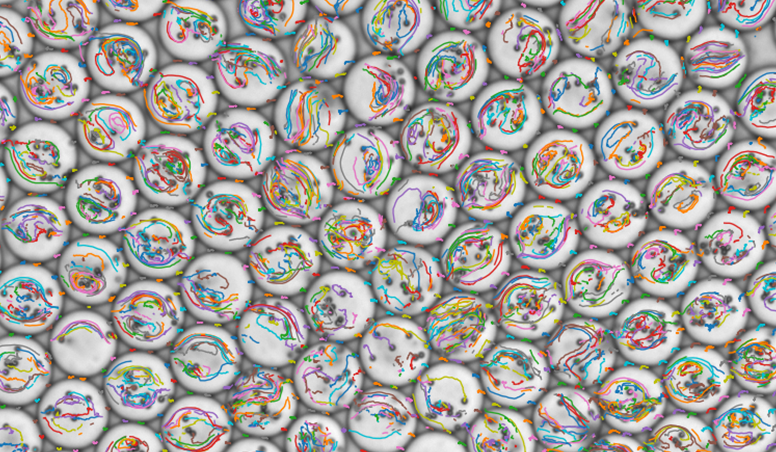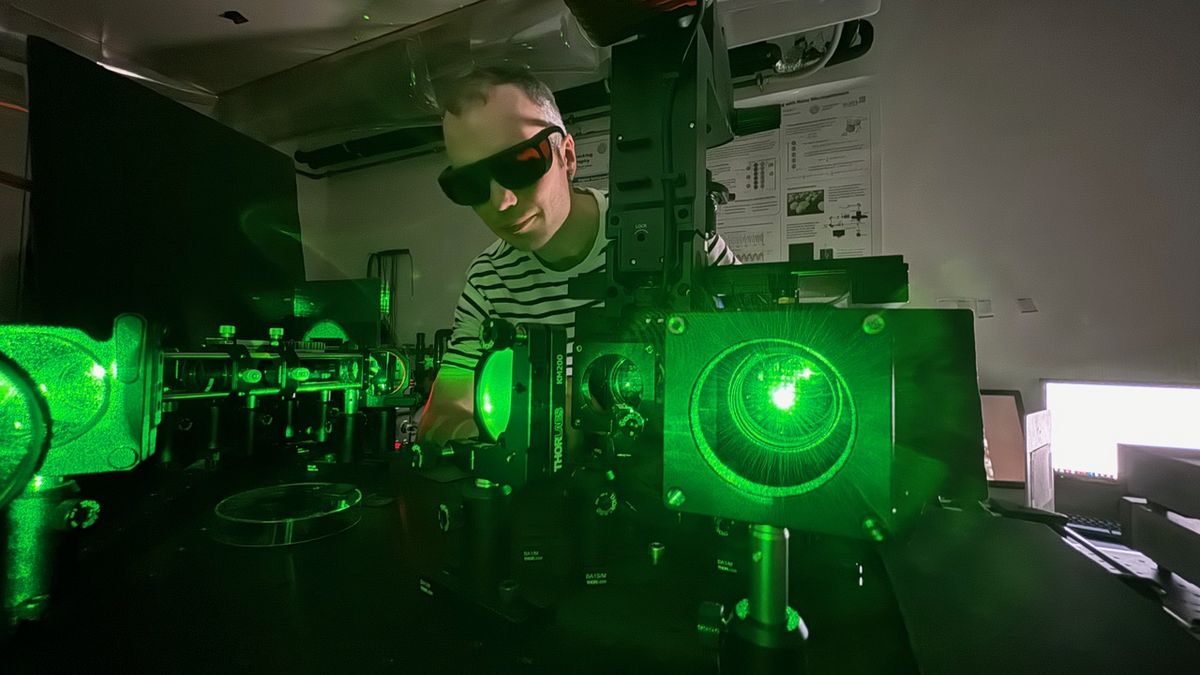One option for specialisation within the master's course of study Physics is the field of soft and active matter. Find out more about the master's track soft and active matter and the recommended modules here.
Active matter physics is a rapidly growing field at the intersection of physics, biology, and materials science, focusing on systems composed of entities that consume energy to move and interact. Unlike traditional matter, which is typically in or near equilibrium, active matter systems are inherently out of equilibrium. This leads to unique and often complex behaviours uncovering new principles of organisation. Among many other perspectives, active matter physics has the potential to transform the development of functional materials by introducing dynamic, adaptable, and programmable behaviours by leveraging the self-organising and energy-consuming characteristics of active matter.
Structure of the Course of Study
The master's course of study Physics is divided into two one-year phases: the expansion and advanced phase and the research phase.
| Modules | ||||
|---|---|---|---|---|
| 1st Sem. | Elective Area 1: 12-PHY-MWPE2 Soft Matter Physics (10 CP) | Elective Area 2: 12-PHY-MWPT2 Advanced Statistical Physics (10 CP) | Elective Area 3: Advanced Seminar (5 CP) | Elective Area 4: Physics-Related Electives (35 CP) |
| 2nd Sem. | ||||
| 3rd Sem. | 12-PHY-MFS1 Research Project 1 (15 CP) | 12-PHY-MFS2 Research Project 2 (15 CP) | ||
| 4th Sem. | Master’s Thesis (30 CP) | |||
For the elective area 3 (advanced seminar), you choose one module from the following two modules:
| Sem. | Module No. | Module Title | CP |
|---|---|---|---|
| 1/2 | 12-PHY-MWPSWM | Specialised Topics of Soft Matter Physics* | 5 |
| 1/2 | 12-PHY-MWPSTP | Specialised Topics of Theoretical Physics** | 5 |
* with the topics Biological Physics or Molecular Nanotechnology
** with the topic Complex Systems
For the elective area 4 (physics-related electives), you choose modules with a total of 35 CP from the following elective modules for the master's course of study. You can also choose the module from elective area 1 that you have not yet taken and the second recommended advanced seminar from elective area 3.
In this master's course of study, you can also take the bachelor's modules mentioned below if the knowledge imparted there is necessary for taking the master's modules.
Master Modules
| Sem. | Module No. | Module Title | CP |
|---|---|---|---|
| 2 | 12-PHY-MWPASM | Soft Matter and Biological Physics | 10 |
| 2 | 12-PHY-MWPMON3 | Active Matter Physics I | 5 |
| 1 | 12-PHY-… | Active Matter Physics II | 5 |
| 1/2 | 12-PHY-MWPEMSP | Single-Molecule Spectroscopy | 5 |
| 1/2 | 12-PHY-MWPTKS1 | Stochastic Processes in Physics, Biology and Earth Sciences | 10 |
| 1/2 | 12-PHY-MWPTKS2 | Non-linear Dynamics and Pattern Formation | 10 |
| 1/2 | 12-PHY-MWPTKS3 | Practical Course: Complex Systems | 5 |
| 1/2 | 12-PHY-MWPTKM3 | Theory of Soft and Bio Matter | 10 |
| 1/2 | 12-PHY-MWPTKM4 | Practical Course: Condensed Matter Theory | 5 |
| 1/2 | 12-PHY-MWPSTP2 | Statistical Mechanics of Deep Learning | 10 |
Bachelor Modules
| Sem. | Module No. | Module Title | CP |
|---|---|---|---|
| 2 | 12-PHY-BW3MO1 | Introduction to Photonics I | 5 |
| 1/2 | 12-PHY-BMWEMB | Introduction to Biophysical Methods | 5 |
Working Groups
The following working goups at our faculty are working in the area of soft matter and active matter:
- Biological Physics
Prof. Dr. Claudia Mierke - Biotechnology and Biomedicine
Prof. Dr. Mareike Zink - Molecular Biophysics
Prof. Dr. Ralf Seidel - Molecular Nanophotonics
Prof. Dr. Frank Cichos - Soft Matter Physics
Prof. Dr. Josef A. Käs - Statistical Physics of Evolution
Prof. Dr. Ralf Steuer - Systems Biophysics of Microbial Dynamics
Prof. Dr. Katja Taute

